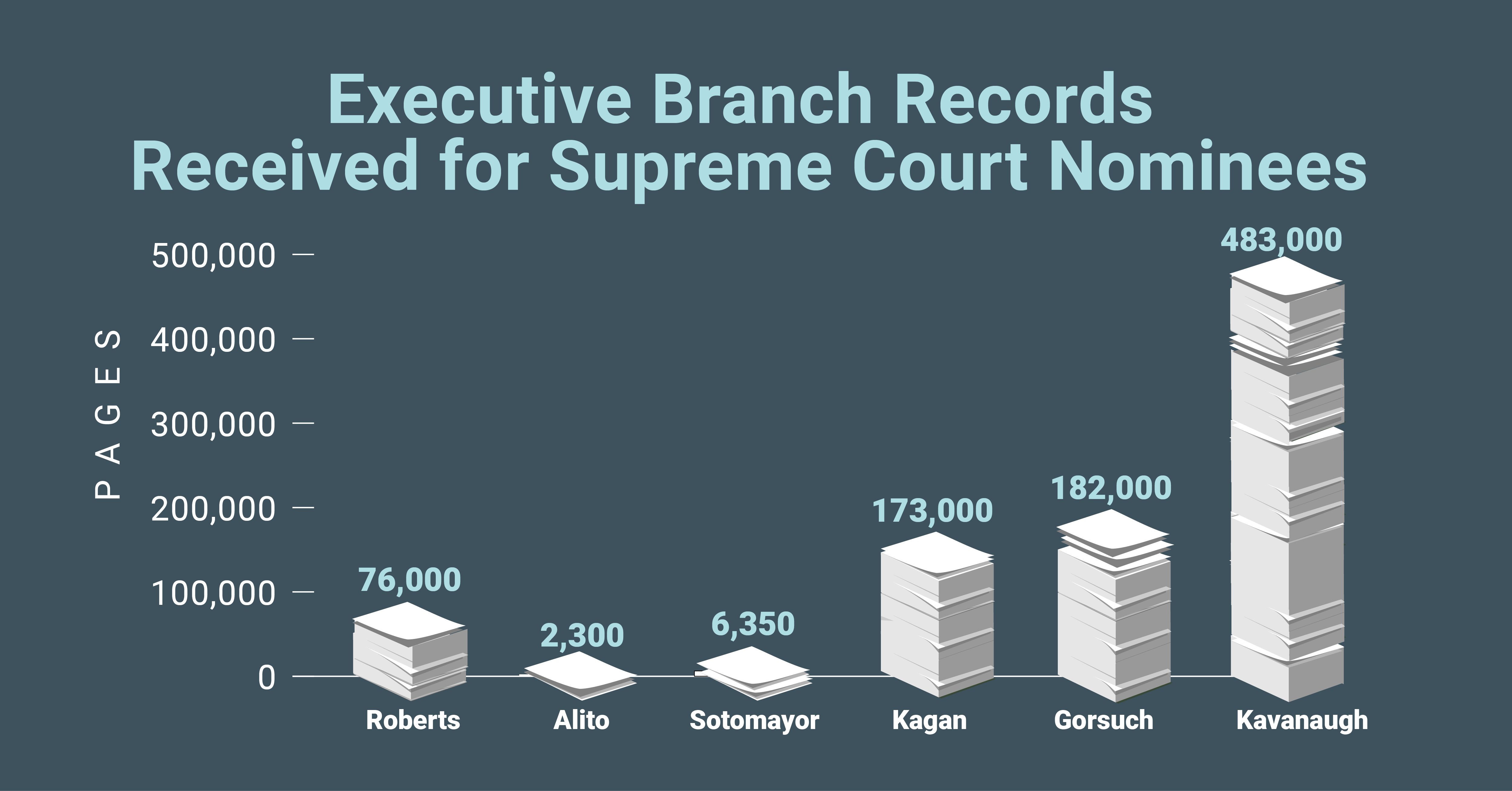More Access to More Records by More People
In
evaluating Judge Brett Kavanaugh’s nomination to the Supreme Court, Senate
Judiciary Committee Chairman Chuck Grassley has greatly expanded transparency and
access to relevant materials. As a result, a historic volume of records is
accessible to more people than ever before.
More Records

HISTORIC VOLUME: The committee has received more
pages of Executive Branch records for Judge Kavanaugh’s nomination than for the
last five confirmed Supreme Court nominees combined.
PUBLIC RECORD: Public Executive Branch material for Judge Kavanaugh totals more
than 290,000 pages, dwarfing the volume of public records for previous Supreme
Court nominees by well over 100,000 pages.
HIGH PUBLIC RELEASE RATE: Nearly two-thirds of material
provided by President Bush has been made public. By comparison, nearly two thirds of Judge
Kavanaugh’s emails that have been reviewed by the National Archives are restricted from the public (Source 1, Source 2, Source 3). In other words, President Bush
released a greater percentage of documents than the Archives for the documents
it has reviewed thus far.
More Access by More People
For previous
nominees, confidential records were provided in non-searchable paper format and
access was limited to committee members, committee chief counsels and the chief
nominations counsel for the Chair and Ranking Member. Today that would be only 42 people. As a practical matter, access
was further limited to the number of people that could review paper records at
once.
For this
nominee, Chairman Grassley established a process of receiving confidential
material in searchable digital format on a software platform that allows
simultaneous access, vastly improving and expediting the review process.
Chairman
Grassley also insisted on granting access to all senators (not just committee members) members, all committee staff. That’s roughly 250 people.
Grassley set
up computer terminals for non-committee Senators to review confidential documents
and pledged to dedicate his own staff – on a 24/7 basis – to assist in
searching and navigating the records.
Not a single off-committee senator took him up on this offer.